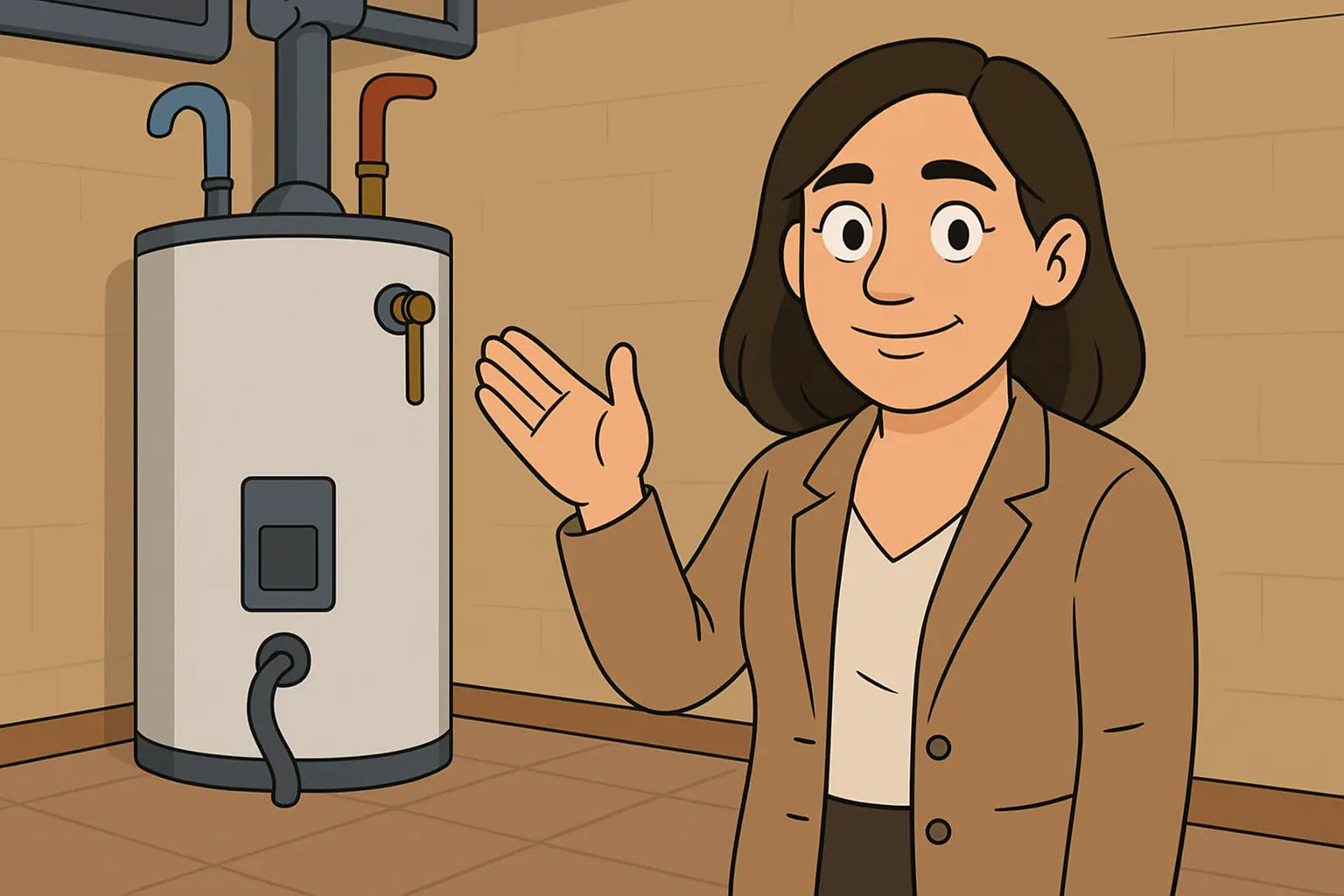💡 Let’s Talk Wiring—Because Mistakes Here Can Get Shockingly Expensive
If you’re installing a 50–60 gallon electric water heater and you’re not 100% sure about your wiring, pause right there. One crossed wire or misjudged amp load can lead to blown fuses, tripped breakers, or even a total system shutdown. 😱 But don’t worry—I’ve got you.
Let’s walk through the most common electrical slip-ups homeowners (and sometimes even pros) make during installation, and how you can avoid them like the confident, capable DIY-er or informed buyer you are. 💪⚡
⚠️ Mistake #1: Using the Wrong Circuit Breaker Size
A lot of folks assume any 240V breaker will do—but that’s a fast way to overload your system or underpower your heater. Most 50–60 gallon electric models need a 30-amp double pole breaker with 10-gauge wire.
Why it matters:
A breaker that’s too small will trip constantly. One that’s too large can overheat your wiring and cause a fire hazard. Yikes.
✅ Fix it: Check your water heater's label for amperage requirements and match the breaker size exactly. Still unsure? This handy guide from The Spruce breaks it down beautifully.
⚠️ Mistake #2: Forgetting to Ground the Unit
Grounding isn’t optional—it’s essential. A ground wire protects you and your heater by giving stray electrical current a safe place to go.
Why it matters:
Without grounding, you risk shocks and electrical damage to your system.
✅ Fix it: Always connect the green or bare copper ground wire to the ground screw on your heater. Need visuals? This Structure Tech how-to has a clear diagram.
⚠️ Mistake #3: Reusing Old Wire That’s Not Up to Code
If you're replacing an older heater and thinking, “I’ll just reuse this old wire,” think again. If the wire is undersized, damaged, or not rated for 90°C operation, you could be looking at future failures—or an inspection red flag.
Why it matters:
Old wire might not be rated for the new heater’s wattage draw, especially with energy-efficient models that operate differently than older units.
✅ Fix it: Install new 10/2 NM-B cable for most setups. And yes—90°C-rated wire is a must.
⚠️ Mistake #4: Mixing Up the Hot Leads
If you’re not familiar with 240V wiring, here's a critical detail: There’s no neutral wire. Both wires (typically black and red) are hot. If you mix them up or try to connect one as a neutral, you’re asking for trouble.
Why it matters:
Incorrect connections can blow out your thermostat or heating elements instantly.
✅ Fix it: Double-check your wiring diagram. Hot-to-hot, ground-to-ground. Period. Lowe's offers a step-by-step visual tutorial for clarity.
⚠️ Mistake #5: Failing to Secure the Wire Connections Properly
Loose wire nuts? Exposed copper? Big no-no. Over time, vibration and thermal expansion can cause poorly connected wires to arc, melt, or short out.
Why it matters:
Even a slightly loose connection can cause flickering power, breaker trips, or system failure.
✅ Fix it: Twist wire nuts tightly, make sure no bare wire is exposed outside the nut, and tug gently to test the connection.
⚠️ Bonus Mistake: Skipping the Power-Off Test 😬
Too many DIYers skip the basics and assume power is off just because the breaker’s flipped. But electricity loves surprises.
Why it matters:
Touching a live wire can lead to serious injury or death.
✅ Fix it: Use a voltage tester before you touch any wires. They're cheap, easy to use, and could literally save your life.
Don’t Want to DIY? That’s Okay Too 💁
Listen, not everyone is cut out for circuit testers and voltage meters. If you're unsure about wiring or your water heater installation seems more intimidating than anticipated, calling in a licensed electrician or plumber is not a failure — it's a smart move. In fact, a study from HomeAdvisor shows that improper installation can lead to higher utility bills, water damage, and voided warranties. Yikes.
The good news? You don’t have to guess. Check out Angi’s guide to hiring a water heater installer to find a pro near you, or browse reviews and prices.
🔌 Wrap-Up from Savvy Mavi
Wiring a 50–60 gallon electric water heater isn’t rocket science—but it is electricity, and that means precision, prep, and safety first. Avoid these five common mistakes, follow the best practices I laid out above, and you’ll be soaking in that steamy, perfectly powered shower in no time. 🚿💕
Now that you know how to wire it safely, let’s make sure you’ve got the right water heater to match. Check out The Furnace Outlet’s collection of 50–60 gallon electric water heaters for solid, high-performance options ready for install—no wiring drama required.
Is your water heater leaking? Visit: Here's How to Diagnose Tank vs. Valve Problems.
Until next time—stay safe, stay grounded, and always double-check your wires.
—Savvy Mavi 💁⚡







